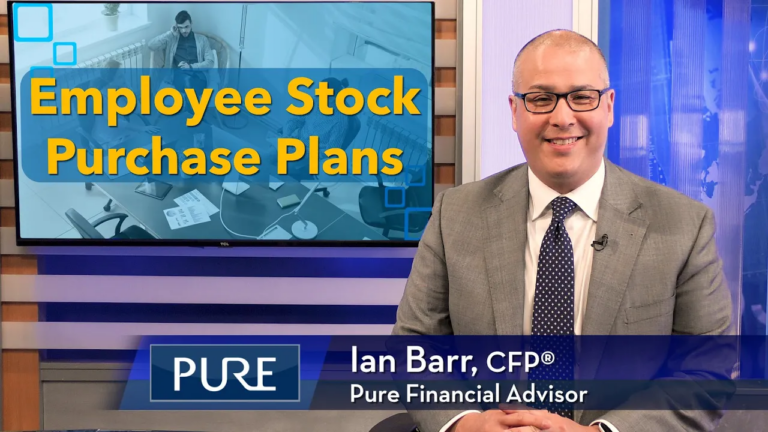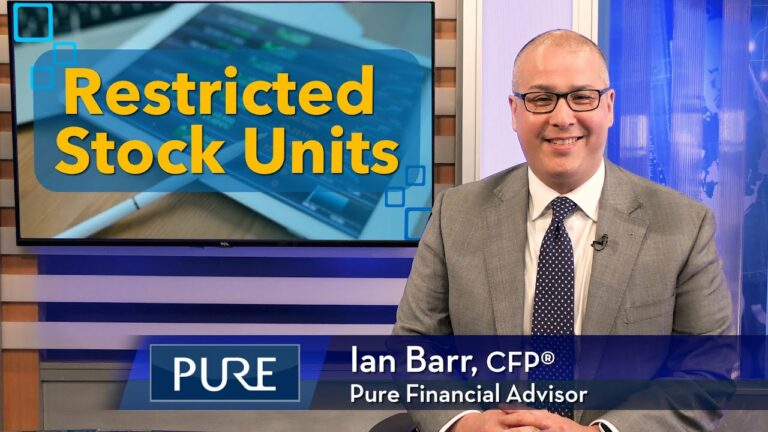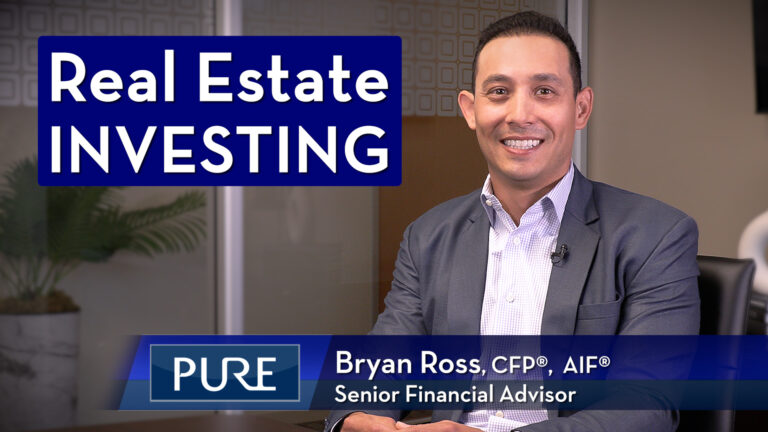While no one knows what the future holds, there are ways you can prepare for life’s uncertainties during retirement to try to limit how blind spots impact your savings. Pure’s Associate Advisor, Alex Valles, CFP®, covers the top three: healthcare, inflation, and taxes.
FREE GUIDE | Retirement Blind Spot Guide
Transcript
On your road to retirement, have you focusing on what lies ahead? Have you been driving diligently to reach a goal or magic number that you calculated years ago? That is often the case for many retirees and when they look in life’s rearview mirror, they realize they have significant blind spots. A few examples of this are health care, inflation and taxes. While no one knows what the future holds, there are ways you can prepare for life’s uncertainties to try to limit how these blind spots impact your retirement plans. While it may seem basic one of the best choices you can make is to simply put a plan in place. Not only does putting a plan in place make it significantly more likely that you will accomplish your goal, but it can also increase your feelings of empowerment and how prepared you feel.
Blind Spot 1: Healthcare
Healthcare is typically one of the biggest expenses in retirement, in fact, recent studies have shown that the average couple age 65 will need $315,000 to cover those expenses. The amount you will ultimately need will depend on how healthy you are, when you retire and what accounts you’ve saved in to pay to cover those costs. The average retirement age in the United States is 62, but someone becomes eligible for Medicare at 65, so those three years of private healthcare premiums could be a significant unexpected cost.
Blind Spot 2: Inflation
Inflation hasn’t always been significant, but the last few years have shown just how much of an impact it can truly have. This blind spot can eat away at your account balances and shrink how far your dollars go, and it needs to be factored in when considering your retirement costs. The average inflation rate from 1960 to 2021 rate was 3.8%. Now, looking at January 2023, the year-over-year inflation rate was 6.4% –that’s nearly double. Ideally, you don’t want to get to retirement and feel comfortable only to realize as you age that you’re not able to maintain your lifestyle.
Blind Spot 3: Taxes
For many people, the focus is on saving and investing their money, but to make the most of your money, you need to limit the amount of taxes you pay. Once in retirement, the money coming out of your pre-tax 401(k)s will be taxed at ordinary income rates and you’ll have required minimum distributions, so you will be forced to take a distribution whether you need the income or not. With that comes taxes and that tax bill can really add up!
These blind spots have been proven to unravel some of the best retirement plans. The plan is only as good as its assumptions. From health care expenses to forced early retirement, accounting for every possible blind spot can help ensure you have the funds that you need to enjoy your retirement.
Subscribe to our YouTube channel.
IMPORTANT DISCLOSURES:
• Investment Advisory and Financial Planning Services are offered through Pure Financial Advisors, LLC, a Registered Investment Advisor.
• Pure Financial Advisors LLC does not offer tax or legal advice. Consult with your tax advisor or attorney regarding specific situations.
• Opinions expressed are subject to change without notice and are not intended as investment advice or to predict future performance.
• Investing involves risk including the potential loss of principal. No investment strategy can guarantee a profit or protect against loss in periods of declining values.
• All information is believed to be from reliable sources; however, we make no representation as to its completeness or accuracy.
• Intended for educational purposes only and are not intended as individualized advice or a guarantee that you will achieve a desired result. Before implementing any strategies discussed you should consult your tax and financial advisors.
CFP® – The CERTIFIED FINANCIAL PLANNER™ certification is by the Certified Financial Planner Board of Standards, Inc. To attain the right to use the CFP® designation, an individual must satisfactorily fulfill education, experience and ethics requirements as well as pass a comprehensive exam. Thirty hours of continuing education is required every two years to maintain the designation.












